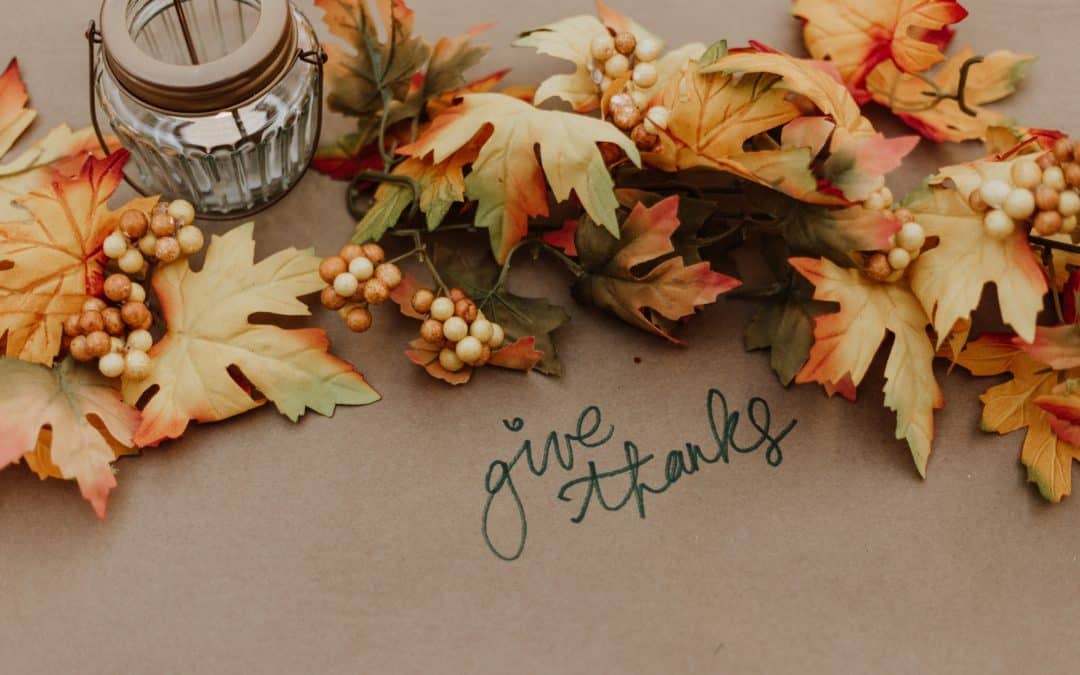As I write this, it will soon be Thanksgiving in the US. One thing I have always enjoyed about social media during this time of year is the opportunity to see the little things that nourish the lives of my friends and colleagues as they share “what I’m grateful for.”
Due to the post-election social climate, though, I’m not seeing much “gratitude” in my Facebook feed this year. Instead, I’m still seeing anger, vitriol, whining, and complaining. I’m seeing the ending of longtime friendships, and the rapid spread of news stories that aren’t rooted in fact.
While I am not willing to permanently close the door on the people I care about, I have been doing some judicious filtering of the folks who keep harping on doom or gloom, whichever side of the political spectrum they happen to lean toward.
Why am I hiding people from my feed, stashing their posts behind a privacy curtain? It’s not because I don’t care about what’s happening in our country or in the world. It’s not because I believe that ignoring world events will somehow make the “bad stuff” go away. In fact, I believe it’s important to be an informed citizen.
But sometimes it’s necessary to step back, to limit the number of voices and views that are vying for your attention.
I’m going to make the bold suggestion that it’s time for you to do the same. At least, it’s time to do so if you want to access your own joy, feel hopeful and have a deeper sense of peace.
I promise you, what you focus on grows. Focusing on anger and vitriol will never make you find any sense of peace or happiness. Sharing stories meant to stir up hate and fear does nothing to spread love. And name calling and labeling folks means you are also labeling yourself.
What you are doing is choosing to extend your own suffering.
Maybe that sounds a little harsh, but I say it because the core goal of my coaching practice is to help you create a daily life that feels loving and nourishing. While I’m a firm believer that all of your feelings are important, even the negative ones, wallowing in negativity doesn’t just make it harder to experience positive emotions when they come, it also makes you more likely to become obsessive. It leads you down a path that only ends in more negative feelings, and more negative interactions.
Feel your feelings, please, but for your physical, mental, and spiritual health, don’t just focus on the negative.
Actively seek gratitude, and you will find it easier to achieve a better balance. Choosing a desired feeling and taking actions that allow you to experience that feeling will propel you towards joy, happiness, and satisfaction.
I am a lover of logic and am grateful for all the scientific research out there that helps us understand how the way our brains work affects the quality of our lives.
Studies on human behavior show that our thoughts create pathways in our brains.
If we tend to go to the negative, those negative pathways grow deeper, becoming deep ditches and ruts for our thoughts, rather than mere roads. This means that, especially in times of severe stress and upset, our minds can’t help but send our thoughts to those entrenched ways of thinking.
As an example, complaining is a choice to focus on the problem instead of seeking a solution. Complaining rewires your brain to the negative and shuts down your ability to problem solve. The more you complain, the more your brain will bring about those negative thoughts. It’s a cycle: the more you complain, the more you’ll find to complain about and the less you’ll find to be grateful for.
But those studies are not all bad news. They also show that you can create new, positive pathways for your thoughts by focusing on the positives in your life – like what you are grateful for. Over time, the old pathways grow over from lack of use, filling in all those ditches and ruts in the roads. At the same time, freshly paved roads of positive streets are formed – smooth, pleasant roads for your joyful, uplifting thoughts.
Science is fascinating, but I also look to other areas of research beyond the black and white of neurology and biology.
When I look at sociological research, such as the work of Brene Brown, I see the evidence that she brings forth from interviews with people who are resilient. Brown began with the assumption that happy people were grateful. What she discovered, however, was that grateful people were the ones that could better access their joy.
When I looked through philosophical texts for evidence on gratitude, I discovered the works of David Steindl-Rast, a Benedictine monk. He wrote about the connection to joy and happiness through gratitude more than a decade before Brown’s research.
Research with couples by the Gottman Institute found that those couples who complain and share negative interactions with each other are more likely to divorce early. It’s hard to nourish loving feelings when the environment is negative. What’s worse, because our brains are wired to the negative, we are more likely to believe criticism over compliments, which destroy our confidence.
Just as fear spreads more fear, joy and beauty inspire more joy and beauty. Choosing to seek grateful tidings enhances your daily life and spreads that hope to others.
So… the choice is yours. Do you want to live a daily life that feels loving and nourishing? Or do you want to struggle and feel BAD? Are you finding ways to build joyful interactions in your daily life or are you complaining? Are you choosing to extend your own suffering? What if you focused on what you are grateful for as a path to nourishing your mind and your spirit?
The holiday season brings about an opportunity to rededicate our lives to being grateful and celebrating what is beautiful in our daily life. That’s going to be my choice. Won’t you join me?
Looking for additional ideas on how to create the life of your dreams?
Snag a free workbook and get inspiration on all the ways to love your life even more.
>>Click Here to Read Additional Strategies for Loving Your Life <<









